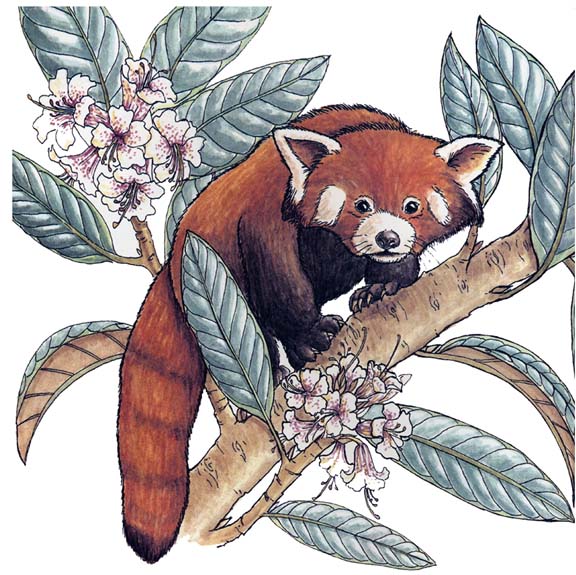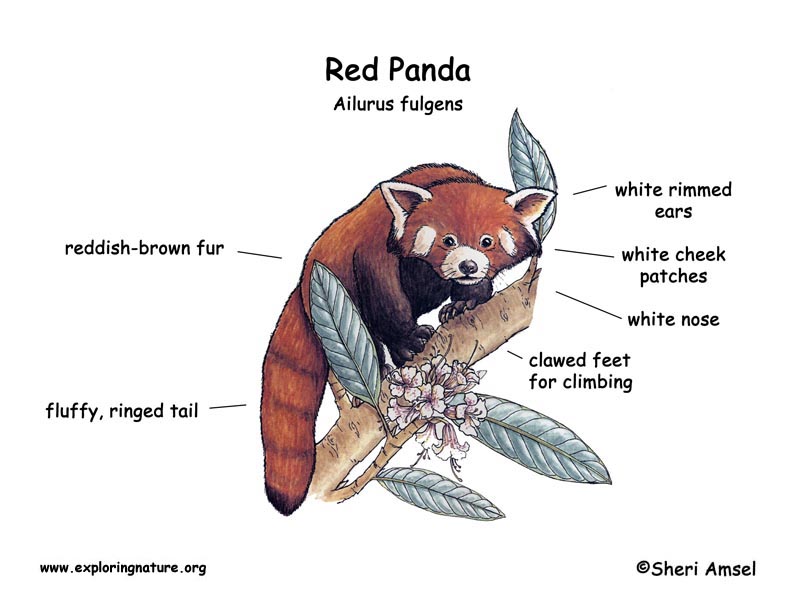


Red Pandas are found in the foothills of the Himalayas and mountain areas of China and Burma.
They live in temperate forests between 5,000 and 13,000 feet.
Red Pandas look like red-furred raccoons with a similar body size and shape and fluffy, ringed tail. They weigh from 7 -12 pounds and are about 3.5 feet long including their tail.
The red panda is most active in the early morning and late afternoon spending most of the day resting in trees conserving their energy as their bamboo diet has a low energy content.
Although they are classed as a carnivore, red pandas eat mainly bamboo shoots, grass and fruit. They do sometimes eat eggs, insects or small animals.
The main predator is the snow leopard.
Red pandas live alone but come together to mate. Females are pregnant for 3 months (gestation) having 1-3 cubs every spring.
Red pandas can live up to 14 years in captivity, but it is not known how long they live in the wild. They are endangered.
Kingdom: Animalia
Phylum: Chordata
Subphylum: Vertebrata
Class: Mammalia
Order: Carnivora
Suborder: Caniformia
Family: Ailuridae
Genus: Ailurus
Species: Ailurus fulgens
When you research information you must cite the reference. Citing for websites is different from citing from books, magazines and periodicals. The style of citing shown here is from the MLA Style Citations (Modern Language Association).
When citing a WEBSITE the general format is as follows.
Author Last Name, First Name(s). "Title: Subtitle of Part of Web Page, if appropriate." Title: Subtitle: Section of Page if appropriate. Sponsoring/Publishing Agency, If Given. Additional significant descriptive information. Date of Electronic Publication or other Date, such as Last Updated. Day Month Year of access < URL >.
Amsel, Sheri. "Panda (Lesser or Red)" Exploring Nature Educational Resource ©2005-2024. December 15, 2024
< http://exploringnature.org/db/view/379 >
